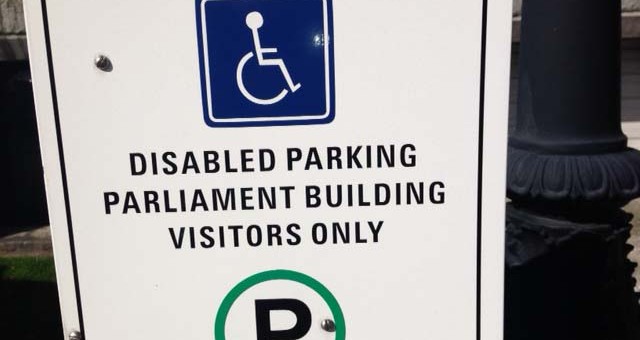Finance
LNG Tax Regime a Generational Sellout
Media Statement: October 21, 2014
LNG Tax Regime a Generational Sellout
For immediate release
Victoria, B.C. – The B.C. Government’s proposed Liquefied Natural Gas Income Tax Act amounts to a generational sellout says Andrew Weaver, MLA for Oak Bay – Gordon Head and Deputy Leader of the B.C. Green Party.
The legislation, which was tabled today, outlines the structure of a new income tax that would apply to LNG producers. Under the current bill, the LNG income tax that was originally proposed back in February of this year was slashed from 7% to 3.5%.
“The LNG Income Tax amounts to a generational sell-out of our natural gas resources,” says Andrew Weaver. “The government is cutting taxes to the bare bone in a last ditch effort to land their hypothetical LNG industry. It is a high-risk gamble with low-returns.”
Under the proposed legislation, the LNG Income Tax would be effective as of January 1, 2017. Companies will initially pay 1.5% on their net operating income. Once net operating losses and capital investments are paid off, the LNG income tax rate will initially increase to 3.5% and then further increase to 5% as of 2037. The government is also offering LNG proponents a B.C. Corporate Income Tax Credit that will reduce that corporate income tax rate from 11% to 8%.
The Minister of Finance rolled back revenue expectations today claiming that under the new tax regime, it would likely take an additional ten to fifteen years beyond initial projections to eliminate the provincial debt.
In his response to the recent throne speech Andrew Weaver outlined a viable alternative vision for a diversified, 21st century economy based on strong existing industries and major up-and-coming sectors like the clean tech sector.
“Rather than gambling revenue expectations and election promises on a hypothetical LNG industry that won’t exist for years, we should instead invest in existing, up-and-coming industries like the cleantech sector that are proven to produce clear returns. Doing so would yield greater economic growth, far faster, while also helping to address the challenges of global warming.”
-30-
Media Contact
Mat Wright – Press Secretary, Andrew Weaver MLA
Cell: 1 250 216 3382
Motion to Amend the Fall 2014 Throne Speech
Today I rose in the legislature to give the required two day’s notice that I will bring forward an amendment to the Throne Speech. Delta South Independent MLA Vicki Huntington seconded my notice of motion.
When I speak to the Throne Speech, and subsequently the amendment on Thursday, I will outline an alternative vision for diversified, sustainable, 21st century economy.
Notice to Amend Motion
Be it resolved that the motion “We, Her Majesty’s most dutiful and loyal subjects, the Legislative Assembly of British Columbia, in session assembled, beg leave to thank Your Honour for the gracious speech which your Honour has addressed to us at the opening of the present session,” be amended by adding the following:
And that the Legislative Assembly of British Columbia accepts the responsibility of demonstrating the leadership to choose growth, to move forward and create a legacy for our children, but also recognizes that this leadership means not gambling our future prosperity on a hypothetical windfall from LNG, and instead supports the development of a diversified, sustainable, 21st century economy.
Have Your Say on Protecting RDSPs from Bankruptcy
Back in March 2014, I raised a concern about the lack of protection for Registered Disability Savings Plans (RDSPs) and Registered Education Savings Plan (RESPs). Industry Canada is now conducting a public consultation that includes these same concerns.
As a quick reminder, RDSPs are a federal, tax-deferred, long-term savings plan for people with disabilities who want to save for the future. Unfortunately, under the Court Order Enforcement Act, RDSPs are not listed as a registered plan in BC’s legislation and are therefore not exempt from creditor protection. Therefore, should an individual with an RDSP go into debt, their savings in the RDSP will not be protected from seizure.
To put this in context, Registered Retirement Savings Plans (RRSPs) and Registered Retirement Savings Plans (RRIFs) are protected. Most provinces, including British Columbia, have recognized the importance of protecting RRSPs and RRIFs from creditors in the event of personal bankruptcy. Legislation was passed to protect these registered plans from being seized in the event of personal bankruptcy. Here in British Columbia, such seizures are governed by the 1996 Court Order Enforcement Act.
Industry Canada is currently conducting a public consultation on the Bankruptcy and Insolvency Act – and in the discussion paper, a proposal has been made to exempt RDSP assets from seizure in insolvency proceedings.
Industry Canada has called for public input on the issue of creditor protection for the Registered Disability Savings Plan. Submissions will be accepted until July 15, 2014. Information about making a submission can be found here.
To read more about the concerns I raised, including my questions to the Minister of Justice, please click here.
.
Protecting RDSPs and RESPs from Bankruptcy Seizure
How many of us plan for bankruptcy? Very few. Unfortunately, it happens far too often. When it occurs, individuals inevitably struggle to rebuild their lives in the hope that one day they will become financially stable once more.
Registered Retirement Savings Plans (RRSPs) were first introduced federally in 1957. Legislation enabling Registered Retirement Income Funds (RRIFs) was subsequently brought forward in the late 1970’s thereby permitting seniors to withdraw their RRSP funds over time instead of all at once or through purchase of an annuity. Since that time, most provinces, including British Columbia, have recognized the importance of protecting RRSPs and RRIFs from creditors in the event of personal bankruptcy. They have passed legislation to protect RRSPs and RRIFs from being seized during bankruptcy. This provides a bankrupt individual a glimmer of hope that they will not be destitute in their old age. Here in British Columbia, such seizures are governed by the 1996 Court Order Enforcement Act.
In 2008 the Federal Government passed legislation to allow for the creation of Registered Disability Savings Plans (RDSPs). The RDSP is a federal, tax-deferred, long-term savings plan for people with disabilities who want to save for the future. Unfortunately, under the Court Order Enforcement Act, RDSPs are not listed as a registered plan in BC’s legislation and are therefore not exempt from creditor protection. Therefore, should an individual with an RDSP go into debt, their savings in the RDSP will not be protected from seizure.
Today in the Legislature I posed the the following question to the Minister of Justice:
A. Weaver: Most provinces, including British Columbia, have recognized the importance of protecting RRSPs and RIFs from creditors in the event of personal bankruptcy. They’ve passed legislation to protect these registered plans from being seized during bankruptcy. This provides a bankrupt individual a glimmer of hope that they will not be destitute in their old age. Here in B.C. such seizures are governed by the 1996 Court Order Enforcement Act. In 2008 the federal government passed legislation to allow for the creation of registered disability savings plans. These are called RDSPs. The RDSP is a tax-deferred, long-term savings plan for people with disabilities who want to save for the future. Unfortunately, under the same act, RDSPS are not listed as a registered plan and are therefore not exempt from creditor protection. My question is to the Justice Minister. It’s this. Does the government have a plan to provide creditor protection for disabled individuals as in, for example, the province of Alberta?
The Minister of Justice responded:
Hon. S. Anton: I thank the member opposite for bringing this matter to the attention of the House, because it is an important one. Our government is committed to modernizing our laws and keeping them up with protecting our vulnerable citizens. When new things come along, like this particular plan, it has to keep up as well. It is an important issue for people with disabilities and their families. We are looking at it as part of the general review of the Court Order Enforcement Act. We’re looking at our legislation. We’re comparing it with other provinces to ensure harmonization. There are complex questions attached to the issue, I’m told, but we will be looking at those. I’d be glad to keep the member abreast of where we’re going and keep him involved in the discussion, because it is a matter that needs to be addressed
The Federal Government has also created the Registered Education Savings Plan (RESP) designed to allow parents to save for their children’s education after they graduate from high school.
Today in the House, I also posed the supplemental question to the Minister of Justice:
A. Weaver: The province of Alberta actually, just this past December, also passed legislation to provide creditor protection for RESPs, the registered educational savings plans. My question again is: does the government have a similar plan to protect a child who, through no fault of their own, might see their education investment seized by creditors?
The Minister of Justice responded:
Hon. S. Anton: Again, I would be very glad to have a look at that one as well. I think that the thoughts behind it are the same. I appreciate the member bringing it to our attention. I would be glad to work with him moving forward on it.
Both these answers are very reassuring and I look forward to working with government and the official opposition to bring in legislation that modernizes the Court Order Enforcement Act.
The province of Alberta has already taken such measures and amended their Civil Enforcement Act to include RDSPs under Section 92.1(I): Exemption of registered plans and registered disability savings plans. On December 13, 2013, legislation in Alberta received Royal Assent thereby also protecting RESPs from creditors.
By ensuring the financial security and well-being of those living with disabilities, we are not only providing the individuals and their loved ones with a sense of security, we are also reducing the strain on social services that incurs when individuals are unable to care for themselves. By also including RESPs in section 71.3 of the Court Order Enforcement Act, we are protecting children who, through no fault of their own, might see their education investment seized by creditors.
Expansion of Carbon Neutral Capital Program Welcome News
Media Statement: March 4th, 2014
Expansion of Carbon Neutral Capital Program Welcome News
For Immediate Release
Victoria BC – Andrew Weaver, MLA for Oak Bay-Gordon Head, is welcoming the expansion of the Carbon Neutral Capital Program announced by The Honourbale Mary Polak, Minister of Environment today. Currently the program provides $5 million annually to school districts for improvements and upgrades to buildings and services for energy efficiency and reduced greenhouse gas emissions. The extension will provide an extra $9.5 million for post-secondary institutions and health authorities.
“What is critical is that this leaves in place the Carbon Neutral Government legislation requiring the public sector to show leadership in emissions reductions. I support the expansion of the capital program to hospitals, universities and colleges. In a media release last November I also called for the government to go further to develop an offset program and provide capital funds for the conversion of school bus fleets and BC Ferries to run on compressed or liquefied natural gas. While this is good news, I remain concerned the expansion of hydraulic fracking and proposals for LNG export plants will put our legislated greenhouse gas reduction targets in jeopardy” said Andew Weaver
Media Contact
Mat Wright – Press Secretary, Andrew Weaver MLA
mat.wright@leg.bc.ca
1 250 216 3382







